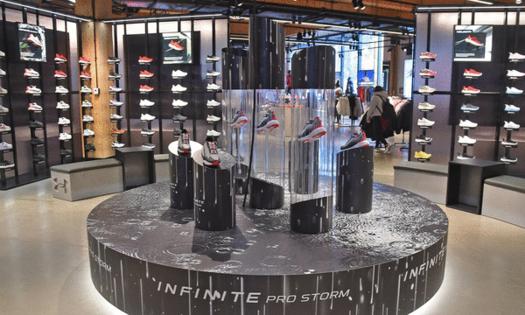Under Armour seeks tariff exemption for footwear
Published in Business News
Calling tariffs on imported footwear an “emergency” for U.S. workers and consumers, Under Armour and its biggest shoe rivals are pleading to the Trump administration for an exemption.
The Baltimore-based athletic shoe brand has joined retailers and manufacturers such as Adidas America, Columbia Sportswear, Crocs, Nike and Puma in a trade group letter asking President Donald Trump to spare shoes and sneakers from additional import duties.
The Footwear Distributors and Retailers of America argues that new reciprocal rates will be stacked on existing and already high footwear duties and result in tariffs ranging from more than 150% to nearly 220% for many U.S. footwear companies.
“Hundreds of businesses face the prospect of closure. Tens of thousands of jobs are at stake,” says the April 29 letter, signed by more than 80 U.S. companies. Many orders have been placed on hold, and footwear inventory for U.S. consumers may soon run low.”
A spokesman for Under Armour declined to comment Tuesday on the impact of tariffs. Under Armour’s athletic shoes are made by contract manufacturers in countries such as China, Vietnam and Indonesia.
The sports apparel and footwear maker has been navigating its latest turnaround plan for about a year in an effort to elevate the brand among its competitors and become more efficient. In February, the company reported a better-than-expected third-quarter performance and raised its annual profit forecast.
Analysts have applauded Under Armour’s goal of resetting the brand to a more premium position while narrowing its focus to core products, but said the turnaround could take time.
The footwear industry’s letter says children’s shoes often are hit with tariff rates of 20% to 37.5% or more, before accounting for reciprocal tariffs. And, it said, some of the highest rates apply to low-value shoes made overseas by U.S. companies that can’t absorb or pass along costs and will instead go out of business.
Trump announced sweeping reciprocal tariffs on most trading partners in April, arguing they have treated the United States unfairly and that additional levies on imports will spur U.S. manufacturing.
Footwear sellers disagree, saying in their letter that despite already high tariffs, domestic shoe manufacturing has declined.
“These tariffs will not drive shoe manufacturing back to the U.S.,” because significant investment and years of planning are needed to shift sourcing, it says. “The new tariffs in fact remove the business certainty that is needed to make these types of investments and erase almost all the necessary capital. …Tariffs just become a major impact at the cash register for every family.”
U.S. footwear companies are struggling with how or whether they will pay higher costs of already shipped products now arriving at U.S. ports, the trade group said.
©2025 The Baltimore Sun. Visit at baltimoresun.com. Distributed by Tribune Content Agency, LLC.












Comments